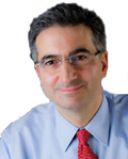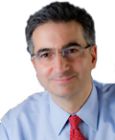Ethics and Morality
What I Learned About Aging and Purpose From Lauren Bacall
Bacall showed me how aging well requires maintaining our ideals, not fame.
Updated October 7, 2023 Reviewed by Tyler Woods
Key points
- When I met Bacall, she was 88, but showed how people can age well by maintaining their values and passion.
- People can age but still inspire others with their moral courage and commitment.
- We can find strength from a sense of purpose that comes not from religion, but cultural and political ideals.
One hundred years ago this fall, Lauren Bacall was born in New York City. Named Hollywood’s 20th greatest female star ever by the American Film Institute, the winner of an Honorary Academy Award, two Golden Globe Awards, two Tony Awards, and a National Book Award for her memoir, her career spanned decades. Millions of people vividly recall her incandescent screen work.
But she also offered several vital lessons about living and aging well.
In 2012, two years before she died at the age of 90, I had the fortune of meeting her at the Upper East Side home of a member of the Kennedy family, with whom we were both friends. I will never forget the experience—she showed me how aging affects us all, even the most beautiful and glamorous, but how we can do it well, not necessarily through money or social status, but by having meaning in one’s life—maintaining our values and passions.
Even at 88, she was one of the most passionate idealists I have ever met, arguing forcefully for our country’s democratic and civil cornerstones. In the 1950s, she and Bogart, along with other Hollywood celebrities, famously publicly opposed the House Un-American Activities Committee’s fear-mongering investigations of alleged communists, and met with members of Congress. But even at 88, she continued to insist on our nation’s fundamental ideals and needs for improvement. In the current era of ever-widening threats to democracy, faltering governmental standards, and cynicism about our political system, her courage and commitment may get overlooked, but deserve attention.
Research shows that having more sense of purpose in life, and of control over one’s life and health, (a so-called internal locus of control) are associated with better physical health, including less disease, pain, strokes, dementia, and Alzheimer’s. Purpose in life consists of having goals and a sense of meaning and direction. Yet, while many people find such purpose through reliance on faith and traditional religions, Bacall showed how it can consist of social and political ideals as well.
At the dinner with Bacall, I was talking with someone when she walked in and looked up at us.
“Are you talking about my cane?” she asked. I was surprised to see that, despite her fame, it was a humble, generic metal one with a semi-circular grey rubber handle—the kind I, as a doctor, had given to poor patients who could afford no other. “Well, It works!” she exclaimed.
At dinner, she remarked that she was unhappy with the direction of the country.
"Everyone has guns. It’s ridiculous. You turn on the TV, and it’s about people shooting each other. Education is terrible. Where are the parents? They don’t teach kids anything. And there’s no healthcare in this country. Recently, I had to go to the doctor for something. They don’t answer your phone calls. They don’t explain things. They don’t talk to you.”
“It’s partly because insurance companies give them little time,” I said.
“But they don’t listen to you! I got a call from the lab tech—not the doctor, the lab tech! ‘Your blood work is low. You need to take a taxi here right away.’ The gastroenterologist had found the problem, but was so good that another medical center took him and made him head of gastroenterology there. Now, he doesn’t have time for any patients. I don’t know what can be done about it.” Even for a VIP like her, good medical care was hard to get.
“I think we can work to make things better," I said. "I see young people in my classes who are optimistic.”
Trying to shift the conversation a bit, I asked her about her work on the campaigns of the Kennedys.
“I used to go to events for Teddy," she said. "I miss him. If only we had him now.”
She continued, “I loved FDR. My father died when I was young, so I looked up to FDR. He had a twinkle in his eye. Truman had a twinkle in his eye, too. He had character. No one has a twinkle in his eye now.”
“No one?” I asked.
“Can you think of anyone?”
“No,” I confessed.
“I don’t know what can be done,” she continued.
“Well, we have to try…” I started.
“This family,” she said, looking around her, referring to the Kennedys, “has tried more than anyone, Lord knows. And has paid a terrible price. Look what happened!”
“Do you go to the theater and films?” I asked her, once more trying to change the subject.
“I don't like recent films," she said. "I like old films, on TV.”
"They don’t make them like they used to," I replied.
“It’s all about money today," she said. "Everything is. The arts are not respected.”
I tried to raise the topic of films again, but she wasn’t very interested. She seemed almost bored by it, as if it were something from a distant past. What she cared about was our country today and where it was headed.
“I was organizing my papers,” she said, “seeing letters from Bill Faulkner, Sherwood Anderson, and others. People today wouldn’t even know who they were.”
“When you worked with Faulkner and these others, did you know that you were dealing with greatness?” I asked.
“Good publishers knew that they were great," she said. "Howard Hawks knew that Faulkner was great. I would go by Hawks’ cottage at the studio, and there would be Bill Faulkner, lying on the couch with his pipe,” she held an imaginary pipe in her hand in front of her face to show me. “With his Sooouthern draaawwwl…”
At the end of dinner, she had trouble getting out of her chair. “Give me your arm.” I held it out. “That's not giving me your arm. I mean really give me your arm. Like this." She held it stiff and strong, like a wooden ledge. I complied. She felt empowered, even on a small personal scale, to maintain some control over her fragile ambulation.
What I took away from the dinner was how strength and resilience in growing old come not necessarily from having fame or high social status, but from strength of character, maintaining your ideals, and a sense of what you feel is right, believing the world can be a better place, and engaging with new people. While countless individuals seek these objectives through organized religion, upholding social, cultural, and political ideals is vital, too. Today, as many citizens grow weary of our nation’s politics, we should not drop our visions of what we can do and be, even—or especially—as we age.
As we parted, she kissed me on the lips. Still the seductress. I will never forget her kiss, her commitment, or her spirit.




